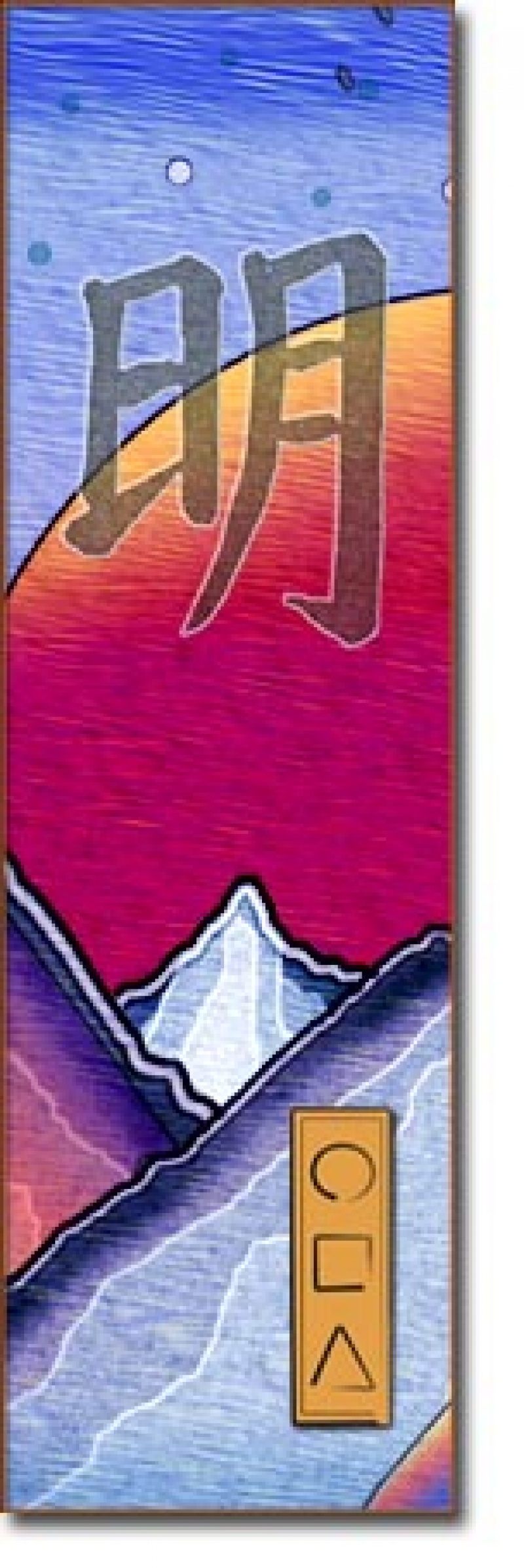On The Way: The Daily Zen Journal
Song of the Mind (Xin Ming)
Niutou Farong (594-657)
The nature of the mind is non-arising,
What need is there of knowledge and views?
Originally there is not a single dharma;
Why discuss inspiration and training?
Coming and going without beginning;
Sought for, it is not seen.
No need to do anything;
It is bright, still, self-apparent.
The past is like empty space;
Know anything and the
Basic principle is lost,
Casting a clear light on the world,
Illuminating, yet obscured.
If one-mindedness is impeded,
All dharmas are misunderstood.
Coming and going thus,
Is there need for thorough investigation?
Arising without the mark of arising,
Arising and illumination are the same. 
Desiring to purify the mind,
There is no mind for effort.
Spontaneous wisdom
Throughout time and space
Nothing is illuminated;
This is most profound.
Knowing dharmas is non-knowing;
Non-knowing is knowing the essential.
Using the mind to maintain quietude,
Birth and death forgotten;
This is original nature.
The highest principle cannot be explained;
It is neither free nor bound.
Lively and attuned to everything,
It is always right before you.
There is nothing in front of you;
Nothing, yet everything is as usual.
Do not belabor wisdom to examine it;
Substance itself is empty and obscure.
Thoughts arise and pass away,
The preceding no different from the succeeding.
If the succeeding thought does not arise,
The preceding thought cuts itself off.
In past, present, and future,
There is nothing;
No mind, no buddha.
Sentient beings are without mind;
Out of no-mind they manifest.
Niutou Farong (594-657)
Excerpted from Song of Mind: Wisdom from the Zen Classic Xin Ming – Sheng Yen




This Song of Mind translated by Master Sheng Yen was the basis of twelve retreats with commentary given on each line of the poem. It is a piece which requires many readings; as the Chinese say, essentially, 1,000 readings makes clear the book. What I enjoy about writing like this, is exactly that it makes us slow down and hear with another part of our consciousness. The meaning does not just jump out for most of us used to quick understandings, then moving on to the next activity vying for our attention.
This kind of reading is like a meditation in itself. One can let the words wash over and slowly absorb into the pores. If Master Sheng Yen could devote so many retreats to this poem, surely we can allow the extra time to open up to this work. Sort of like meeting the author half way…
“Niutou's method emphasizes cultivating wakefulness and stillness together without attaching to either. In the beginning we must use our senses to observe the world, but we should not use discriminating mind to attach to the world…. The Song of Mind says that true enlightenment is no enlightenment, and true emptiness is not empty.”
Returning Again,
Elana, Scribe for Daily Zen